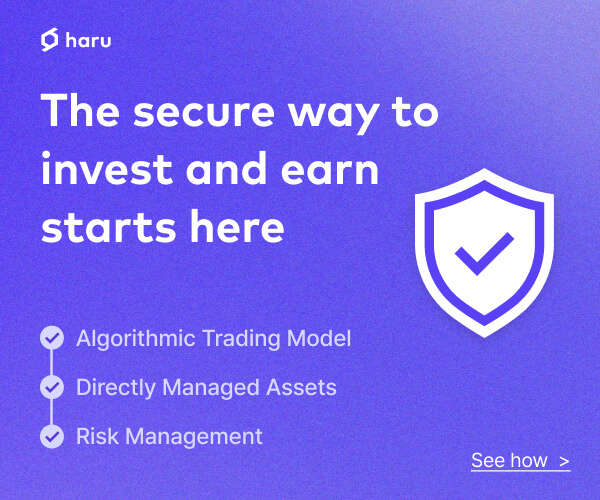Blockdaemon is a blockchain infrastructure company established to empower crypto businesses to help them quickly deploy and iterate innovative solutions on blockchain. Glenn Woo, Head of Sales for the Asia Pacific region, joined CryptoSlate to talk about how the blockchain structure is evolving toward mass adoption.
Blockdaemon is currently supporting over 60 blockchain protocols. In addition, the company offers a wide range of node operations and tools that can be used in all project stages, from early testing to post-launch. Woo summarizes what Blockdaemon does by saying:
“We provide node infrastructure. We want to be kind of like cloud providers for any companies that want to build on any kind of blockchain, we have the node support for them. So that its very easy and economic to set up their own nodes and to build whatever application they want to build….
We call it as a ‘node-as-a-service’”
Woo also mentioned staking infrastructure and referred to it as the “bread and butter of Blockdaemon.” In addition to offering a solid node infrastructure service, the company also runs public validators for over 30 Proof of Stake blockchains.
Blockdaemon also finalized its Series C Funding round, where it raised $207 million and reached a valuation of $3.25 billion. Woo said that the company wants to integrate all its services to become a scalable infrastructure provider for blockchain companies.
Promoting multi-chain adoption and institutionalization
Woo mentioned that the crypto space had experienced a growth in the number of Layer 1 and Layer 2 chains and bridges over the past 18 months. To respond to this expansion, projects with a significant consumer base aim to integrate into these chains as much as possible to spread across multiple chains. Woo said that Blockdaemon helps bridge this gap and promotes a multi-chain future.
In addition to the existing crypto projects that seek to expand, Woo also mentioned that more and more traditional institutions are entering the crypto space. Although, despite their enthusiasm, “these institutions have very little knowledge,” Woo said, “we really want to help them onboard blockchain quickly and economically.” He stated:
“I think we are contributing quite a bit to the institutionalization of the space as well.”
Woo continued to explain the hustles of building a blockchain infrastructure from scratch. “In order to for you to host your own infrastructure for everything you want to build, you need a lot of resources and hire many engineers for each different function you want to build.” However, he said that Blockdaemon is trying to make this process much lighter, cheaper, and quicker.
The issue with the blockchain trilemma
When CryptoSlate’s Akiba asked if services like Blockdaemon promote centralization in the Web3 space, Woo explained that they don’t take sides in the centralization debate and build whatever the community demands.
Woo said:
“We’re very agnostic. We build products based on the market demand. We do have an in-house protocol research team that always monitors the number of nodes, and where they are deployed. So if the community decides in favor of decentralization, we will adjust for that as well.”
Woo said it depends on projects to sacrifice from one end of the blockchain trilemma. While acknowledging that decentralization is essential, he also asked, “If there is a super-decentralized blockchain with zero scalability, what good does it do?”
GameFi is the key to expand.
Before closing off, Akiba asked what the community could do to bring more people onto Web3. Woo said that he thought the GameFi industry had great potential to onboard new people, as it offered a familiar experience with blockchain, which could be translated to new Web3 experiences.
Woo said that the gaming experience using blockchain technology could be translated to be relevant to other scenarios you can have in the digital world.
Read More: cryptoslate.com










 Bitcoin
Bitcoin  Ethereum
Ethereum  Tether
Tether  XRP
XRP  Solana
Solana  Dogecoin
Dogecoin  USDC
USDC  Cardano
Cardano  Lido Staked Ether
Lido Staked Ether  TRON
TRON  Avalanche
Avalanche  Sui
Sui  Wrapped stETH
Wrapped stETH  Toncoin
Toncoin  Shiba Inu
Shiba Inu  Chainlink
Chainlink  Wrapped Bitcoin
Wrapped Bitcoin  Stellar
Stellar  Hedera
Hedera  Polkadot
Polkadot  WETH
WETH  Bitcoin Cash
Bitcoin Cash  LEO Token
LEO Token  Litecoin
Litecoin  Uniswap
Uniswap  Pepe
Pepe  Hyperliquid
Hyperliquid  Wrapped eETH
Wrapped eETH  NEAR Protocol
NEAR Protocol  Ethena USDe
Ethena USDe  USDS
USDS  Internet Computer
Internet Computer  Aptos
Aptos  Aave
Aave  Mantle
Mantle  MANTRA
MANTRA  POL (ex-MATIC)
POL (ex-MATIC)  Cronos
Cronos  Ethereum Classic
Ethereum Classic  Render
Render  Bittensor
Bittensor  Monero
Monero  Tokenize Xchange
Tokenize Xchange  Dai
Dai  Artificial Superintelligence Alliance
Artificial Superintelligence Alliance  Virtuals Protocol
Virtuals Protocol  Arbitrum
Arbitrum